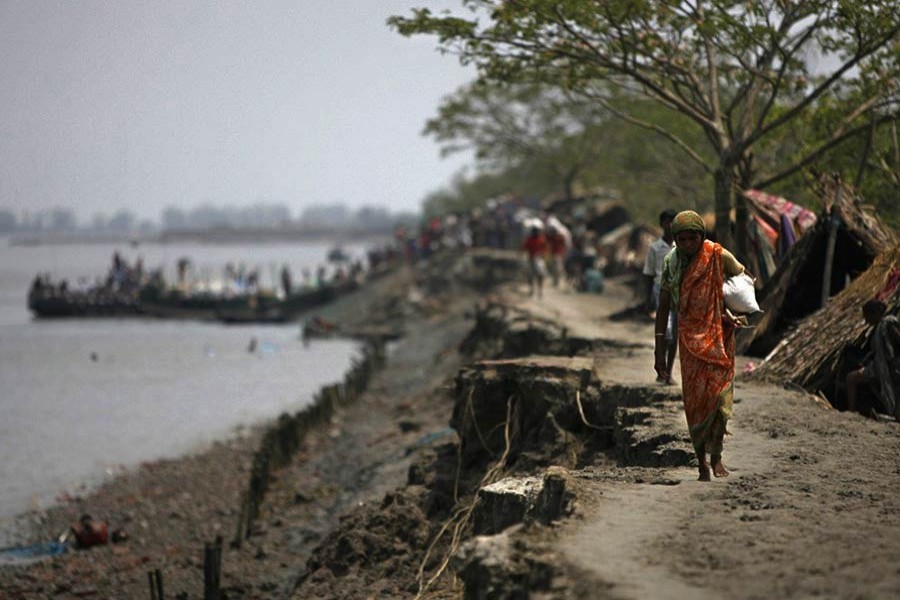The Asian Development Bank (ADB) and Bangladesh have signed agreements for $250 million in loans to strengthen climate and disaster resilience in 22 coastal towns in Bangladesh.
Sharifa Khan, secretary, Economic Relations Division, and Jiangbo Ning, deputy country director, ADB, signed the agreements on behalf of Bangladesh and ADB, respectively on Monday.
"The project prioritizes local economic development in project towns by enhancing the livelihood resilience and adaptive capacity of vulnerable households through the graduation program in six project towns with high poverty levels," said Deputy Country Director Jiangbo Ning.
"The project will support the Government of Bangladesh in achieving integrated and sustainable urban development to improve the liveability of coastal towns in the face of increasing climate-related disaster risks," Deputy Country Director Jiangbo Ning.
The assistance under the Coastal Towns Climate Resilience Project will develop infrastructure for building climate resilience in coastal towns, including infrastructure to improve urban flood risk management such as stormwater drainage, nature-based solutions, water body restoration, and integrated waste management. Cyclone shelters with early warning systems will be established, taking into account the needs of the elderly, women, children, and persons with special needs.
Bridges, culverts, and roads with stormwater drainage will be constructed and rehabilitated, according to UNB.
A comprehensive set of interventions in six project towns will be implemented to help vulnerable households, especially poor women, cope with climate shocks and develop livelihood resilience.
These include climate risk assessment for diversifying livelihoods, household skills and resources mapping, enterprise and employment matching, and provision of livelihood training.
The project will strengthen the knowledge and capacity of the Local Government Engineering Department and the project towns in managing climate and disaster resilience.
They will be trained on nature-based and green solutions, gender equality and social inclusion-responsive climate and disaster risk sensitive master planning, and information technology-based remote monitoring to inform risk-based urban development plans and develop mitigation measures.
The project will also enhance public awareness to prepare for future emergencies and crises.
The ADB financing includes $246 million in regular and concessional loans and a $4.0 million grant from the Asian Development Fund. Bangladesh will contribute $60 million.


